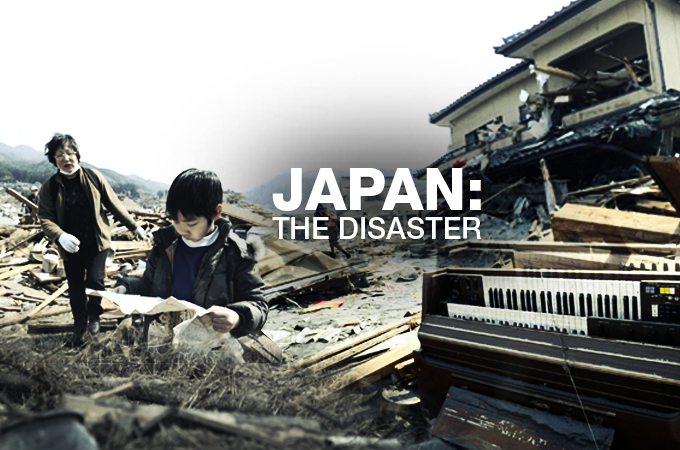Nuclear situation ‘grave’ Japan PM warns
Naoto Kan says the situation at disaster-hit power plant is unpredictable as officials fear breach at one reactor.

Japan’s prime minister has warned the situation at the country’s quake-hit nuclear power plant remains “unpredictable” after officials said they suspected a breach in the reactor core of a unit at the complex.
“The current situation is still very unpredictable. We’re working to stop the situation from worsening. We need to continue to be extremely vigilant,” Naoto Kan said on Friday.
Keep reading
list of 4 itemsAfter the Hurricane
World’s coral reefs face global bleaching crisis
Why is Germany maintaining economic ties with China?
He also praised emergency workers at the Fukushima Daiichi plant in northeastern Japan, which was hit by a massive earthquake and tsunami two weeks ago, for “risking their lives” in the battle to control the situation.
Earlier, officials from the plant’s operator said there was possible damage at reactor number three at the complex, meaning more radioactive contamination may have leaked into the environment.
“It is possible that the pressure vessel containing the fuel rods in the reactor is damaged,” a spokesman from Tokyo Electric Power Co (TEPCO) told the AFP news agency.
Radioactive leaks
Japan’s nuclear safety agency said radioactive substances had leaked to places “far from the reactor”.
“As far as the data show, we believe there is a certain level of containment ability but it’s highly possible that the reactor is damaged,” Hideyuki Nishiyama, a spokesman for the agency, said.
Reactor number three is of particular concern because it uses a potentially volatile mix of uranium and plutonium.
Several workers at the plant were evacuated on Thursday with suspected radiation burns and a further two workers were taken on Friday morning after radiation-contaminated water seeped over the top of their protective boots, the AP news agency said.
 |
| Click here to follow Al Jazeera’s special coverage |
However it is understood that two of the reactors at the nuclear complex, 240km north of Tokyo, are now regarded as “safe” in what is termed a “cold shutdown”. The other four reactors at the plant remain volatile, belching smoke and steam as work continues to cool fuel rods.
The 9.0-magnitude earthquake and tsunami that struck Japan’s northeast coast on March 11 knocked out the crucial reactor cooling systems at the plant, which lies 250 km from Tokyo, the capital, and caused a number of explosions and fires..
Emergency workers and engineers have been battling to cool overheating reactors and fuel rod pools, by pumping in sea water.
The United States is shipping two million litres of fresh water in a pair of barges to the plant. But there are concerns that, as the water boils off, salt is left behind – coating the mixed oxide fuel rods and preventing them from being efficiently cooled.
Higher radioactivity has also been detected in the ocean near the Fukushima plant on Japan’s Pacific coast, raising public fears about the safety of fish and seaweed, which are traditional staples in the island nation’s diet.
China’s customs authorities told Reuters on Friday that two Japanese travellers entering China were found to have radiation levels “seriously exceeding limits”. The pair were given medical treatment and presented no risk to others, said officials.
The report followed news of bottled water shortages after panic buying broke out in cities across Japan, as “higher than normal” levels of radiation were this week found in tap water near Tokyo.
Singapore, Australia, The Philippines and Taiwan have joined the US and Hong Kong in restricting food and milk imports from the zone around the crippled nuclear power plant.
German shipping companies were reportedly avoiding the Tokyo Bay area ports due to radiation fears, as shipping industry officials said the country could face supply chain bottlenecks as vessels get diverted.
Yet ports in Tokyo, Yokohama, Kawasaki and Ichikawa are “very safe”, said Japan’s transport ministry on Friday. Transport officials added that all 15 ports damaged by the earthquake and tsunami are now operational for recovery and reconstruction efforts.
Meanwhile the death toll from the earthquake and tsunami has now topped 10,000, officials said.
At least 17,400 people are still missing, said the National Police Agency, two weeks after the disasters triggered further emergencies after damaging the cooling system at a nuclear power plant.